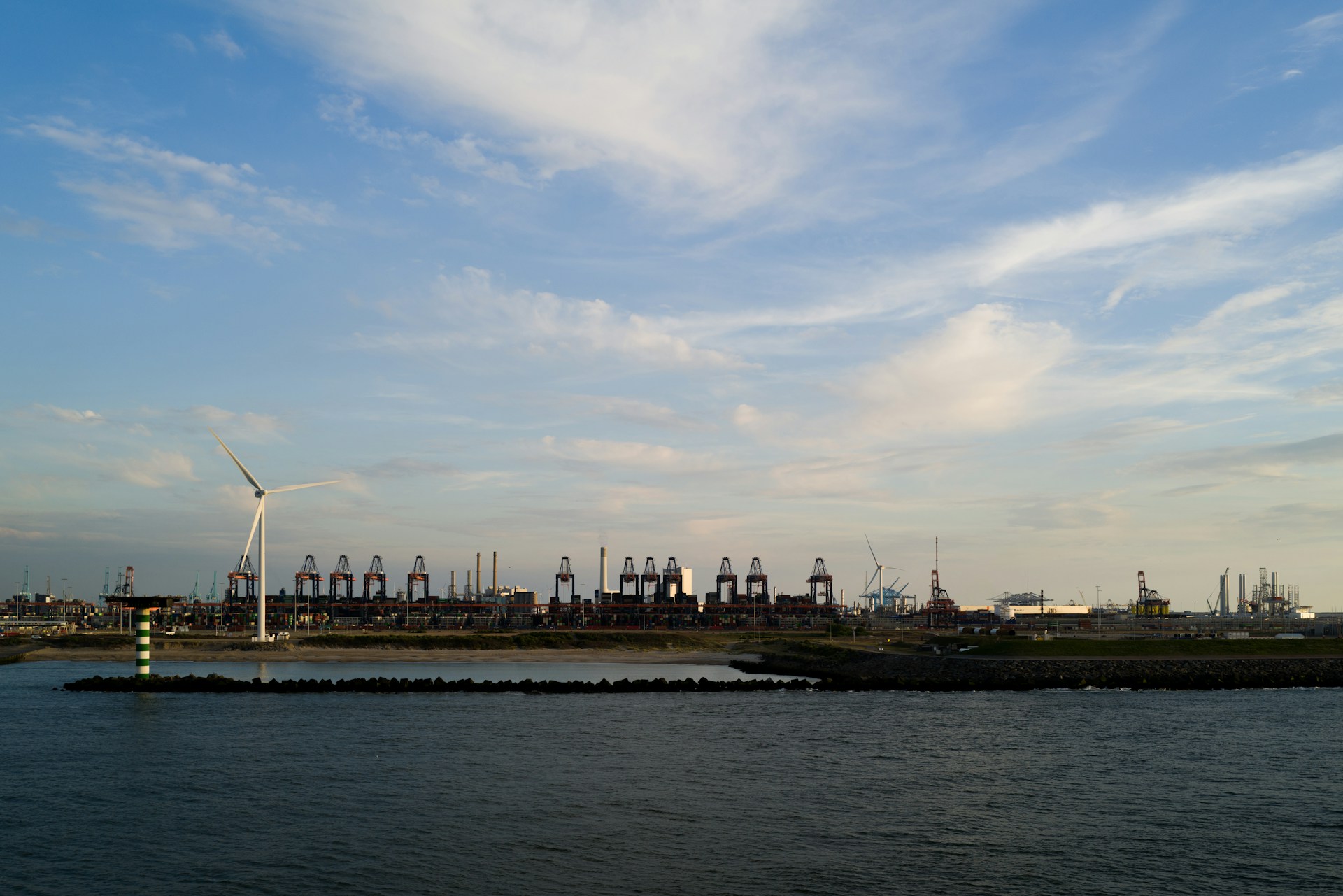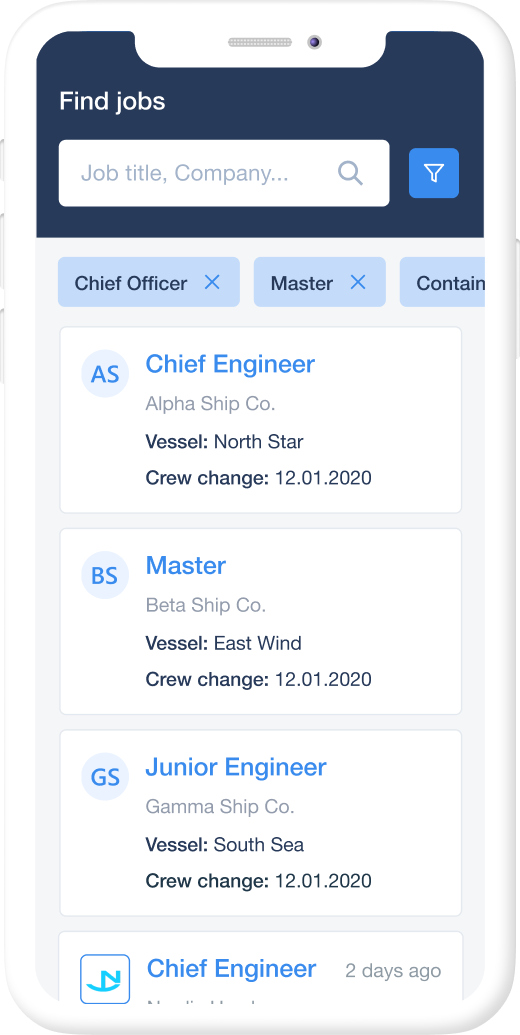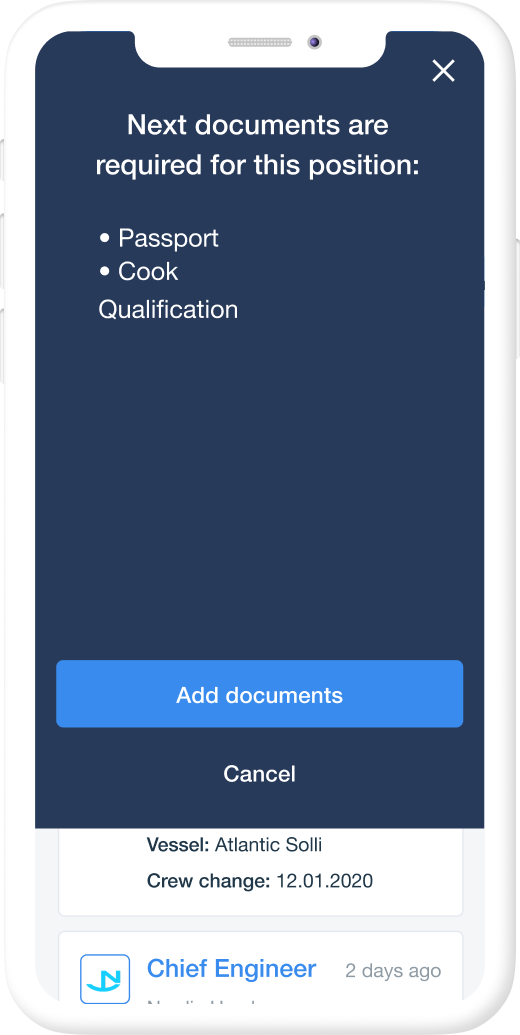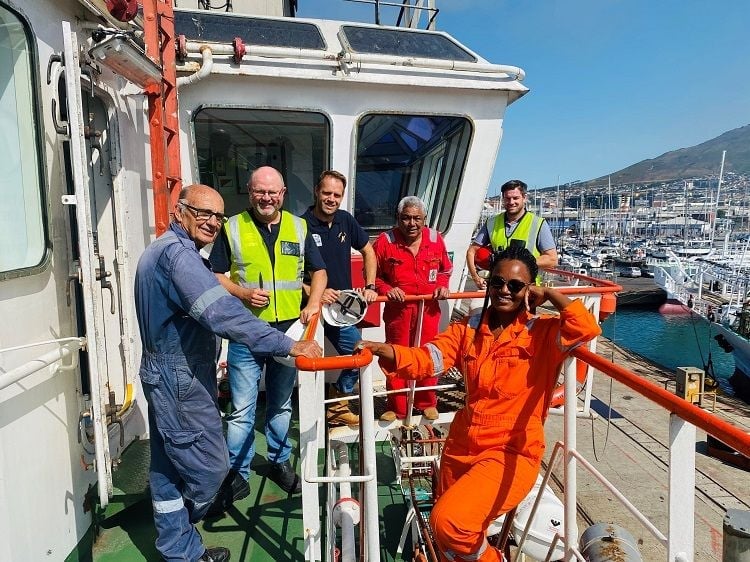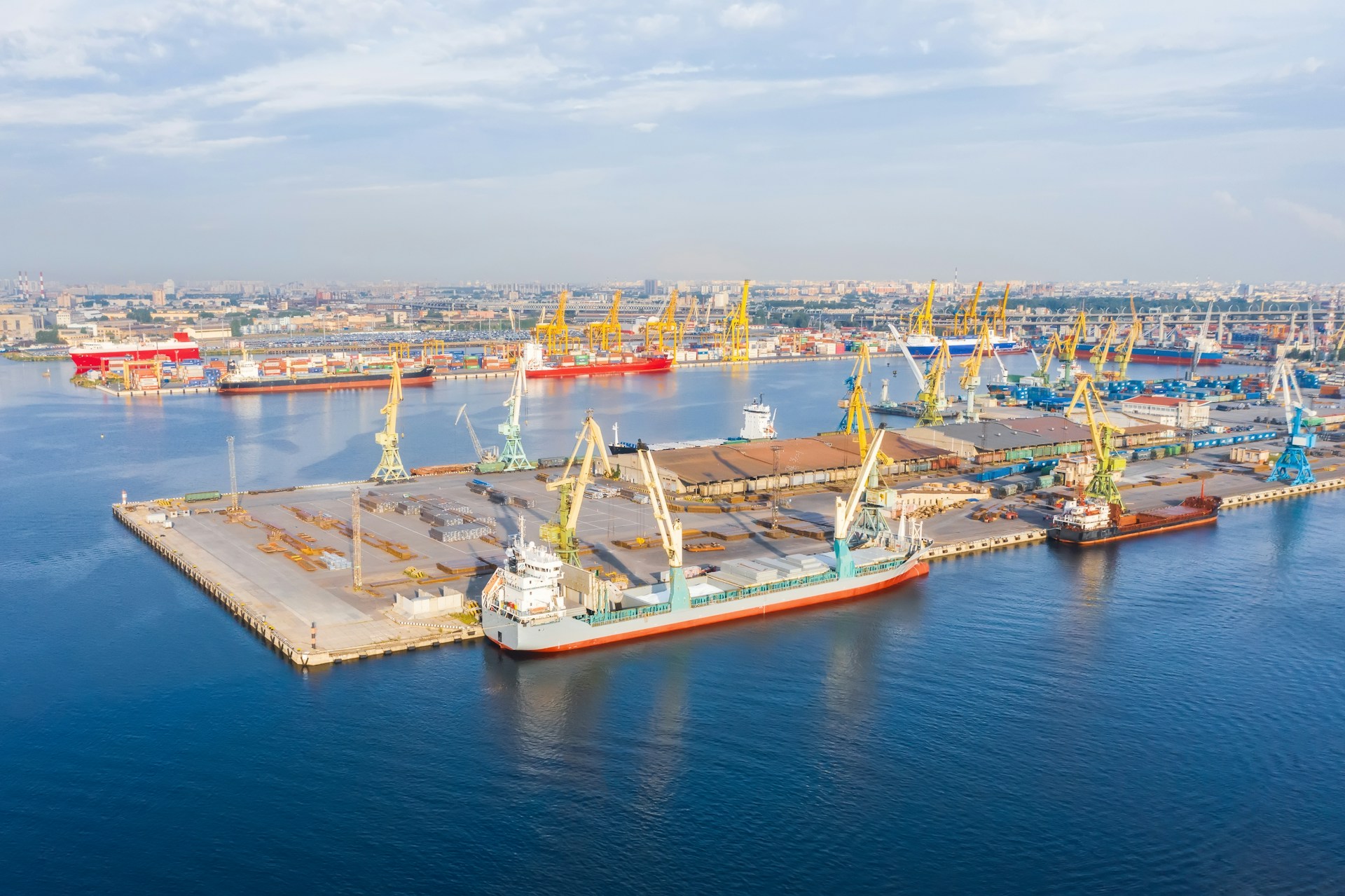In the fast-paced world of global trade, ports are the beating heart of the shipping and logistics industries. They serve as gateways connecting supply chains across continents, handling billions of tons of cargo annually.
Yet, as the demand for faster, more efficient, and sustainable operations grows, traditional port systems are under increasing pressure to evolve. Enter the era of smart ports, where cutting-edge technology transforms the way ports operate, driving efficiency and innovation across the maritime sector.
Smart ports leverage advanced technologies such as the Internet of Things (IoT), artificial intelligence (AI), big data analytics, and blockchain to optimize every aspect of port operations.
From real-time tracking of cargo and predictive maintenance of equipment to automated container handling and sustainable energy management, these digitalized hubs are redefining what it means to operate in a connected, intelligent ecosystem.
With global trade volumes projected to continue rising, smart ports are no longer a luxury; they’re a necessity for maintaining competitiveness and meeting environmental targets.
In this post, we’re going to explore how smart ports are revolutionizing the shipping and logistics industries. We’ll take a look at the technologies driving this transformation, check out some real-world examples of ports embracing innovation, and highlight the benefits for businesses, governments, and the environment.
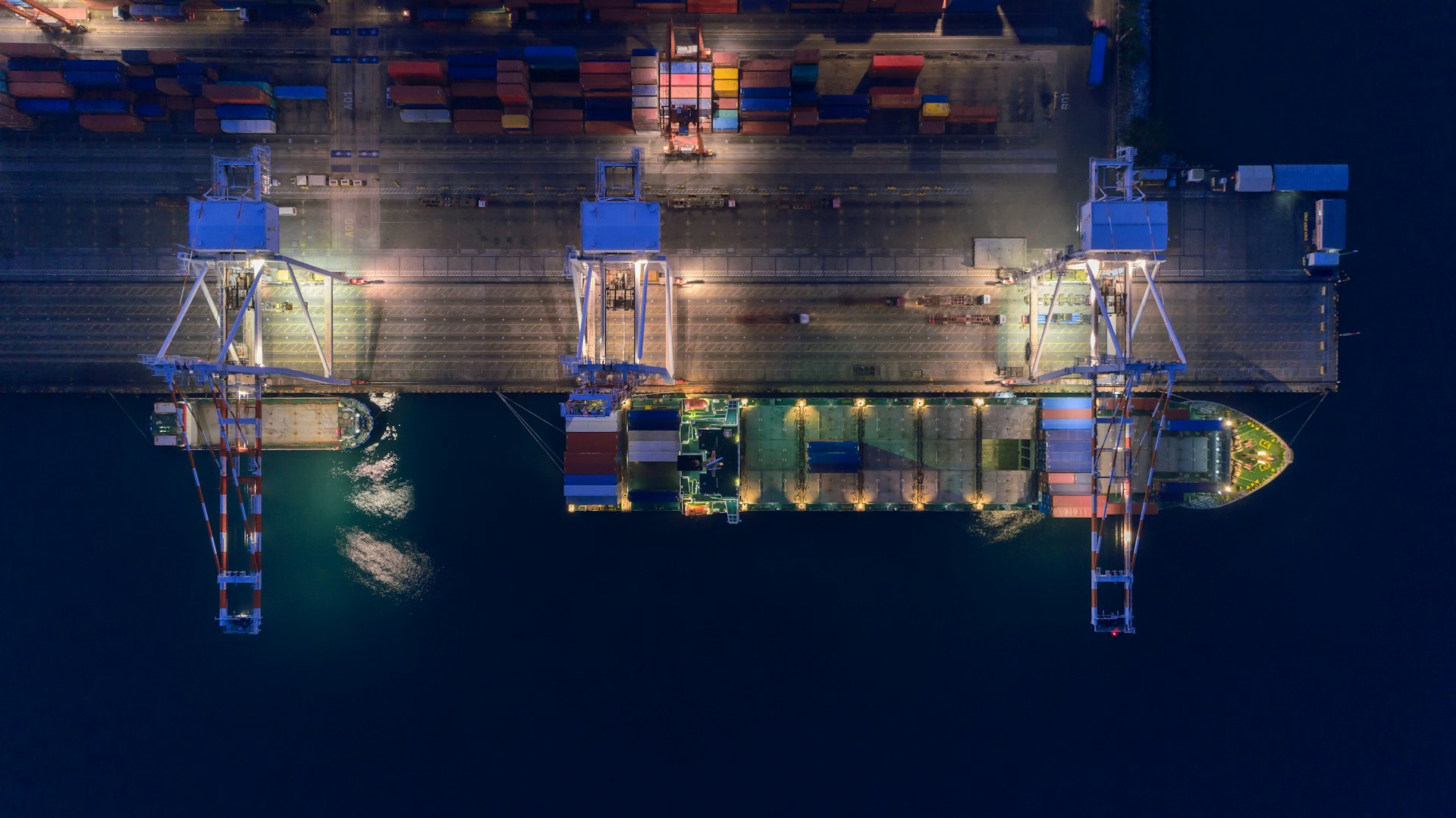
Whether you’re a maritime professional, logistics manager, or industry enthusiast, we hope that we’re going to be able to provide you with some valuable insights into the future of port operations and the crucial role smart ports play in shaping it.
What exactly is a smart port in simple terms?
A smart port in shipping and logistics refers to a technologically advanced port that uses digital tools, IoT (Internet of Things), automation, and data-driven systems to enhance the efficiency, sustainability, and security of port operations.
Smart ports integrate modern technology to optimize various processes, including cargo handling, vessel scheduling, port traffic management, and environmental monitoring.
Key features of a smart port
Ports come in many different shapes and sizes: from small local harbors to vast cargo terminals - and everything in between. But regardless of size, what are the key characteristics that mart ports have in common?
They utilize real-time data integration
Smart ports rely on IoT sensors and devices to gather real-time data on cargo movement, ship positions, equipment performance, and weather conditions. This data is centralized in a digital platform or dashboard for monitoring and more informed decision-making.
Automation
Automated systems handle repetitive tasks such as container handling, crane operations, and inventory management, both increasing operational speed and reducing human error. However, as recent events have shown us, port workers and longshoremen are, understandably, worried about the very real effect automation is having on their jobs and livelihoods.
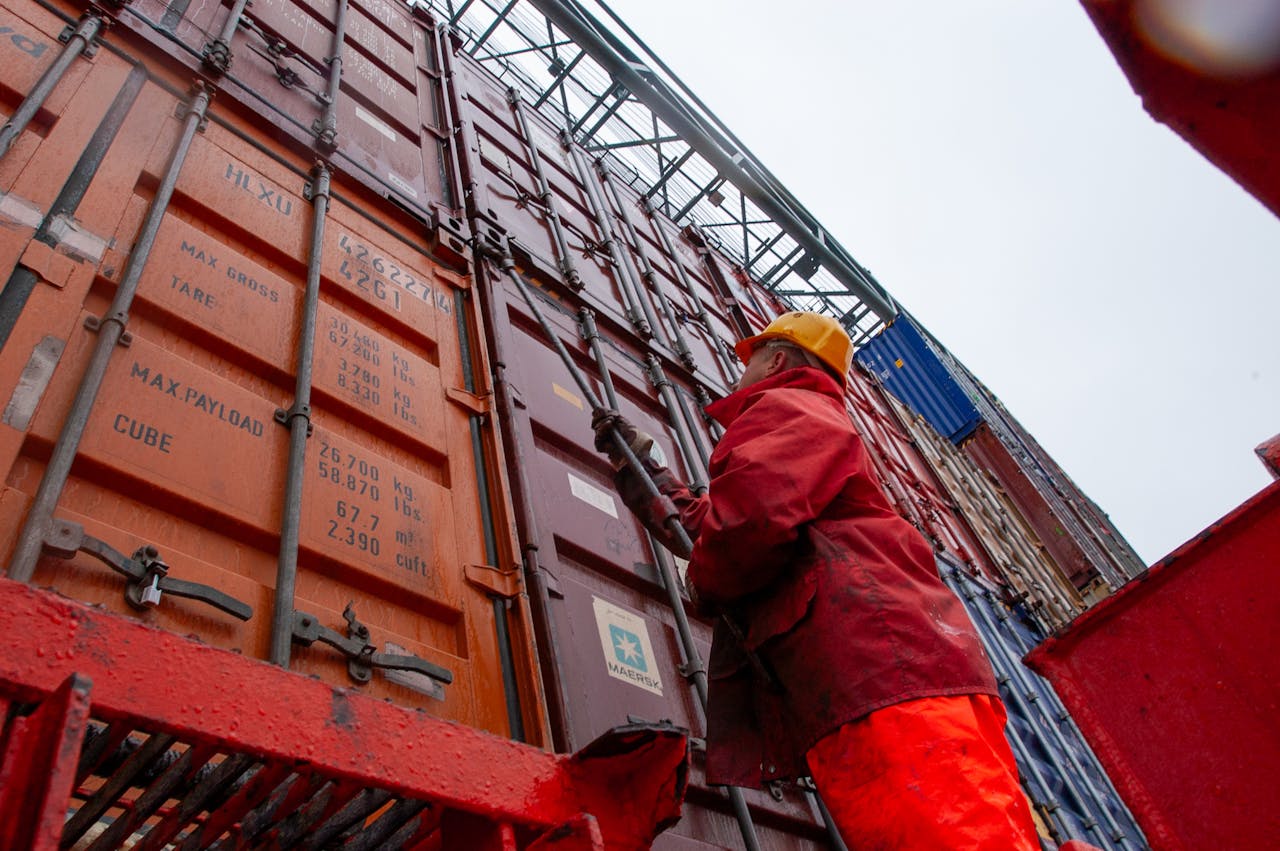
Predictive maintenance
The Internet of Things is starting to be used as a predictive maintenance tool on vessels, but IoT-enabled equipment is also being used to monitor machinery conditions and predict potential failures in ports too. This minimizes downtime and maintenance costs.
Digital connectivity
Smart ports utilize advanced communication technologies like 5G and cloud platforms to ensure seamless data sharing between stakeholders, including shipping lines, customs, and logistics providers.
Optimized vessel scheduling
Advanced algorithms analyze traffic patterns and port operations to optimize berth allocation and minimize waiting times for ships, leading to quicker port turnaround times and shorter stays. Good news for businesses and consumers - perhaps not so great for seafarers who have traditionally used time in port for a little relaxation and recuperation before setting sail again.
Sustainability
Smart ports integrate green technologies, such as renewable energy sources and systems for monitoring emissions, to reduce their environmental footprint. They also employ systems to track and control noise, air quality, and waste management.
Blockchain and secure transactions
Blockchain technology ensures secure and transparent transactions for trade documentation, customs clearance, and supply chain management.
Artificial Intelligence (AI) and machine learning
AI tools analyze vast amounts of data to provide insights on port performance, improve operational efficiency, and forecast demand.
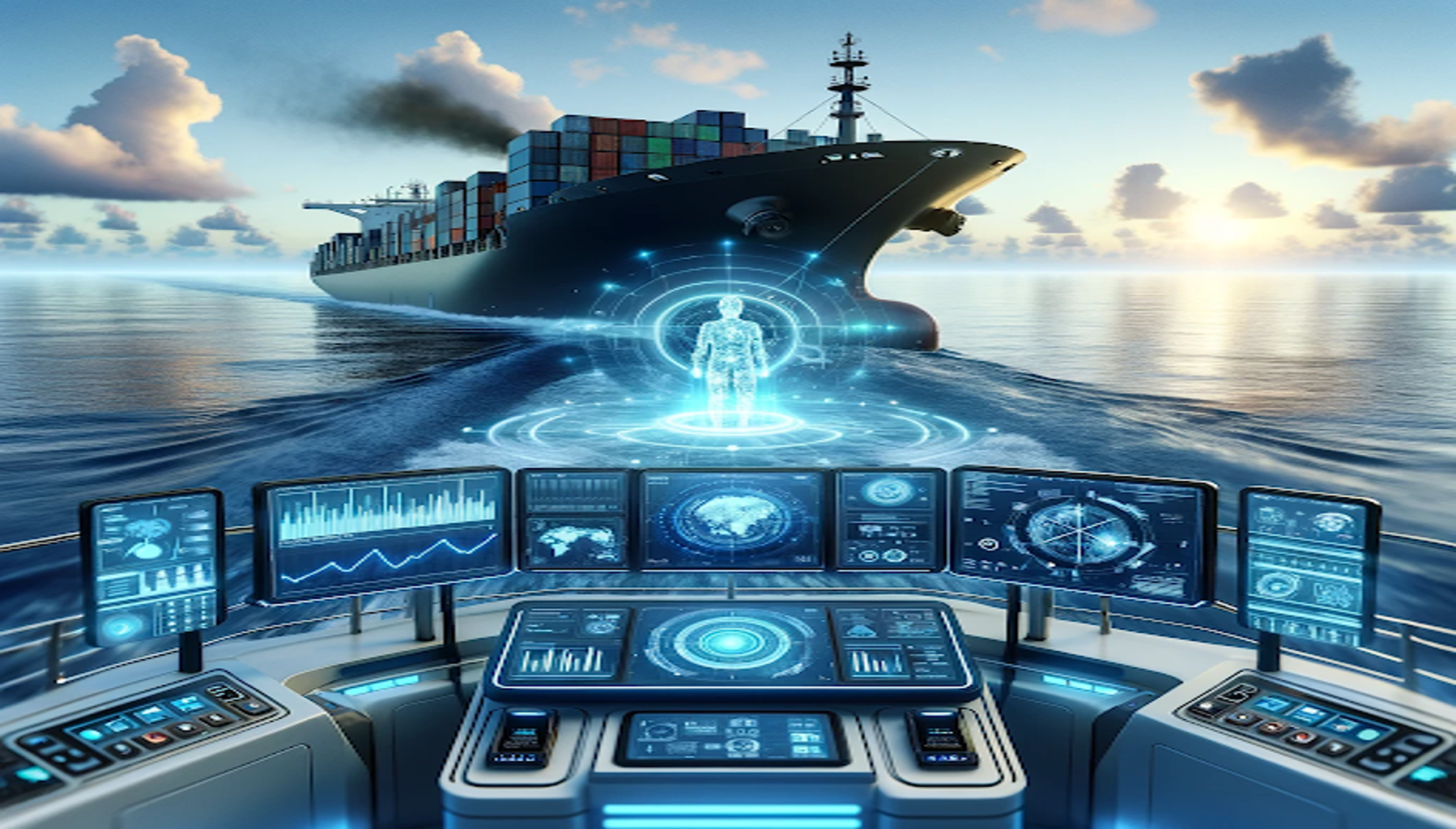
What are some examples of real-life smart ports
They may sound like something from the future, but smart ports exist among us! In fact they can be found globally and there is a very good chance that a good proportion of the products you buy have made their way through a smart port at some point.
This is just a small selection of smart ports that are currently breaking new ground across the globe.
Port of Rotterdam, Netherlands
Known as one of the most advanced and innovative smart ports globally, the Port of Rotterdam is seen as a pioneer in utilizing smart technology to revolutionize its operations.
Leveraging a blend of the Internet of Things, artificial intelligence, and digital twin technology, the port optimizes vessel traffic management, cargo handling, and sustainability initiatives.
Through real-time data collected from IoT sensors installed across the port, operators can monitor weather conditions, equipment status, and shipping movements with unparalleled precision. The port’s digital twin - a virtual replica of the entire harbor - allows for detailed simulations and predictive analytics to streamline operations and reduce inefficiencies.
Additionally, the Port of Rotterdam employs AI-driven tools to optimize berth allocation and manage energy consumption, contributing to its goal of becoming carbon-neutral by 2050. This forward-thinking approach not only enhances efficiency but also reinforces the port’s commitment to sustainability and global competitiveness.
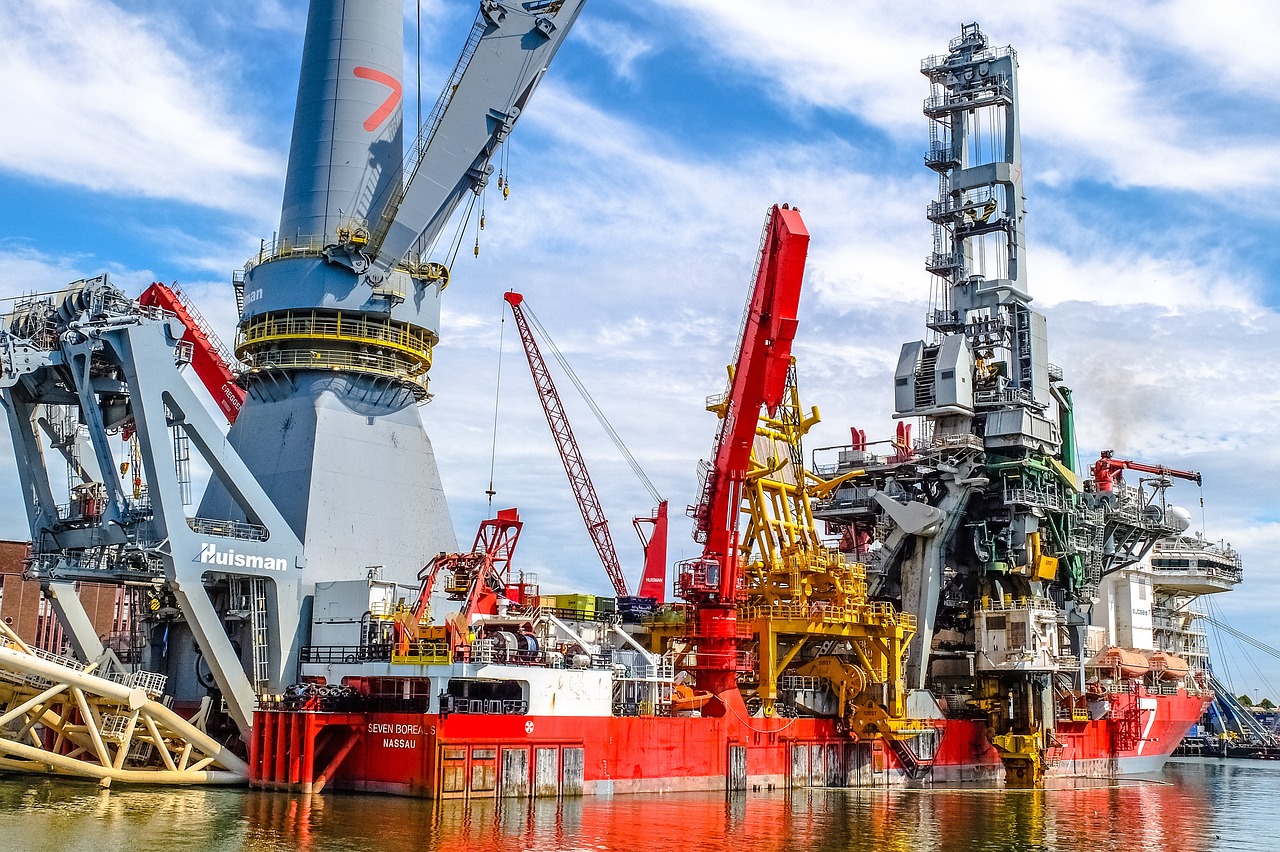
Port of Singapore
The Port of Singapore, one of the busiest and most technologically advanced ports globally, has embraced smart technology to enhance its efficiency, sustainability, and competitiveness. By leveraging automation, the Internet of Things, and artificial intelligence, the port has streamlined cargo handling, optimized berth scheduling, and improved overall logistics.
Automated guided vehicles (AGVs) transport containers seamlessly, reducing reliance on manual labor and increasing operational speed. Real-time IoT data from sensors across the port helps monitor vessel movements, environmental conditions, and equipment health, enabling predictive maintenance and minimizing downtime.
The port also uses AI-powered systems to analyze large volumes of data, optimize resource allocation, and forecast shipping trends. As part of its commitment to sustainability, the Port of Singapore integrates renewable energy solutions and monitors emissions through advanced digital tools, setting a benchmark for smart port innovation worldwide.
Port of Los Angeles, USA
The Port of Los Angeles, the busiest port in the United States, has embraced smart technology to enhance efficiency, reduce congestion, and minimize environmental impact. By implementing a sophisticated digital infrastructure, the port leverages the Internet of Things and big data analytics to monitor cargo movement, optimize vessel traffic, and streamline terminal operations.
Real-time data collected from IoT sensors allows operators to track the status of containers, equipment, and environmental conditions, improving decision-making and resource allocation.
The port also uses predictive analytics to enhance maintenance schedules, preventing equipment failures and reducing downtime.
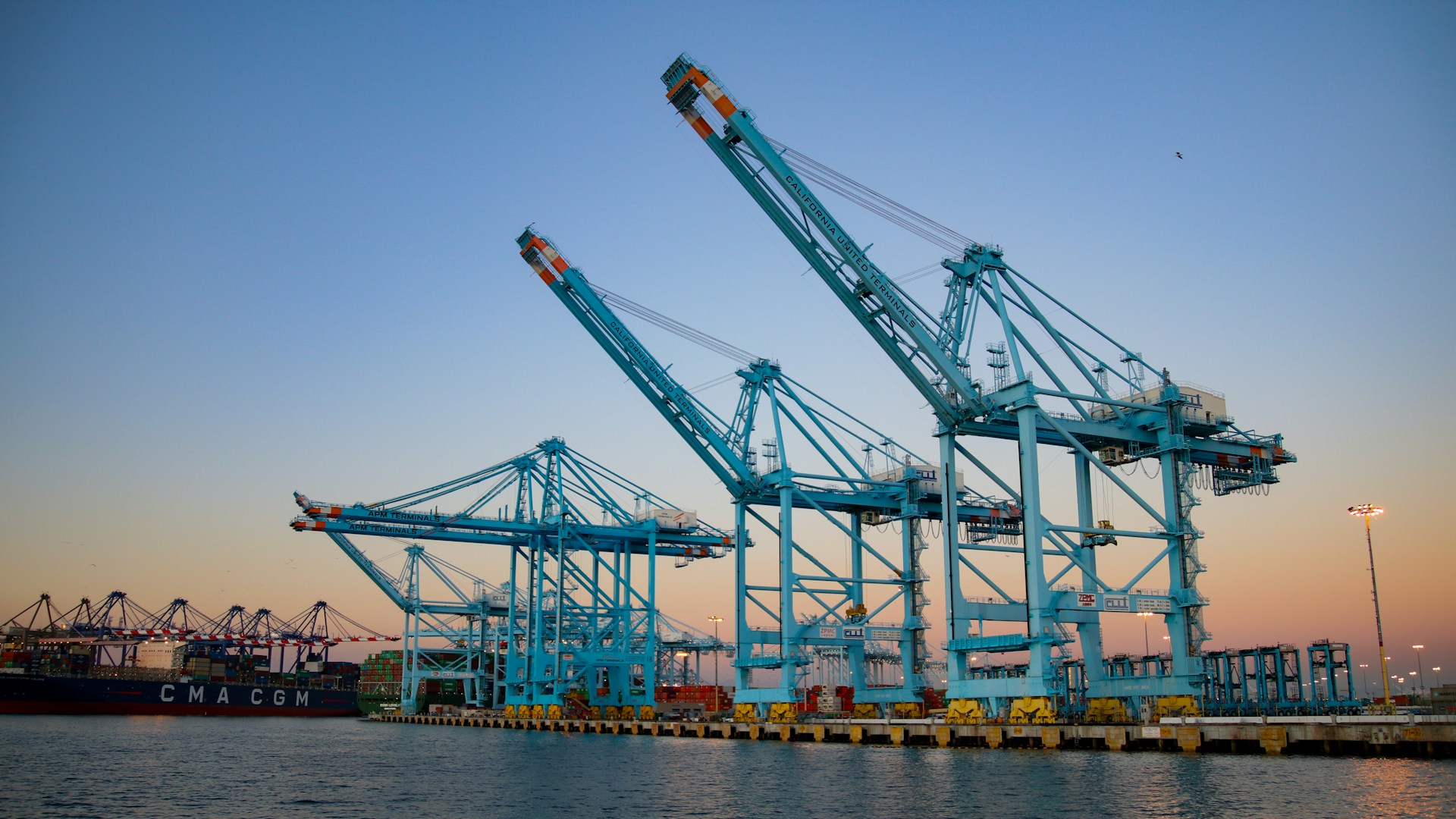
To address sustainability goals, the Port of Los Angeles employs smart systems to monitor emissions and energy use, integrating renewable energy sources into its operations. These advancements position the port as a leader in adopting smart technologies to meet the demands of modern logistics and environmental stewardship.
What are the benefits of smart ports?
There would be little point investing in smart ports and their various technologies and systems if there were few benefits to them. Some of the plusses include, for example:
- Efficiency: Faster cargo handling and reduced waiting times for ships increase overall throughput.
- Cost savings: Predictive maintenance and automation reduce operational costs and resource wastage.
- Sustainability: Environmental monitoring tools help ports comply with regulations and adopt eco-friendly practices.
- Improved safety and security: Real-time monitoring and automated systems reduce risks associated with manual errors and unauthorized activities.
- Transparency: Enhanced data sharing and blockchain technology provide visibility across the supply chain.
The benefits of smart ports for businesses
Smart ports enhance operational efficiency, reduce costs, and improve competitiveness for businesses. Advanced technologies like automation and IoT enable faster cargo handling, streamlined logistics, and reduced vessel turnaround times, minimizing delays and increasing throughput.
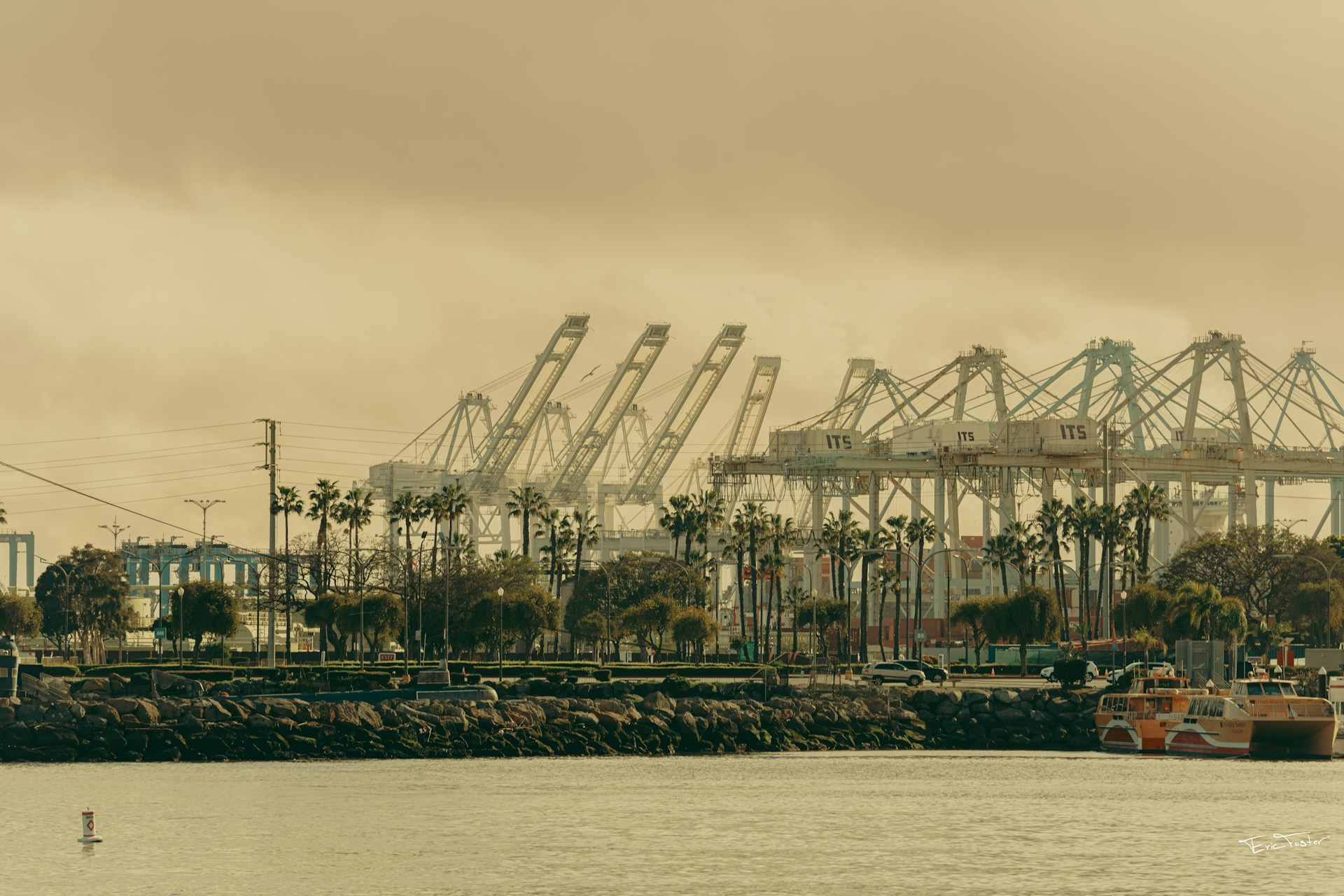
Real-time data and predictive analytics help businesses optimize supply chain operations, prevent disruptions, and make informed decisions. Additionally, the transparency offered by blockchain and digital platforms improves collaboration between stakeholders, fostering trust and efficiency in trade processes.
Smart port benefits for governments and the environment
For governments, smart ports drive economic growth by boosting trade volumes and creating high-tech job opportunities. They also enhance national security with advanced monitoring systems that detect and mitigate risks, such as unauthorized activities or cyber threats.
Environmentally, smart ports play a critical role in reducing emissions and energy consumption. By leveraging renewable energy sources, monitoring air and water quality, and optimizing resource use, smart ports help achieve sustainability goals, aligning with global efforts to combat climate change. This combination of economic, security, and environmental benefits makes smart ports a transformative solution for modern challenges.
In summary, a smart port represents the future of maritime and logistics operations by leveraging technology to meet the growing demands of global trade while promoting sustainability and efficiency.

Eve Church
Eve is Martide's content writer, publishing regular posts on everything from our maritime recruitment and crew planning software to life at sea. Eve has been writing professionally for more than two decades, crafting everything from SEO-focused blog posts and website landing pages to magazine articles and corporate whitepapers.
UK
